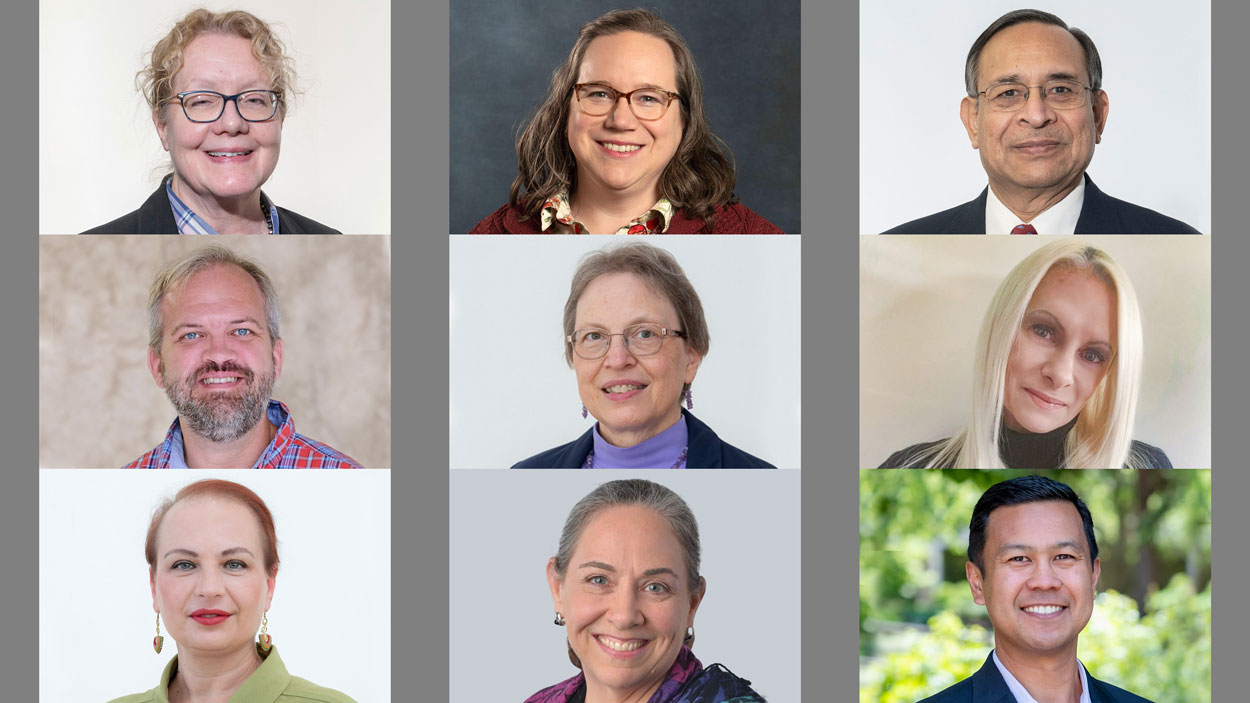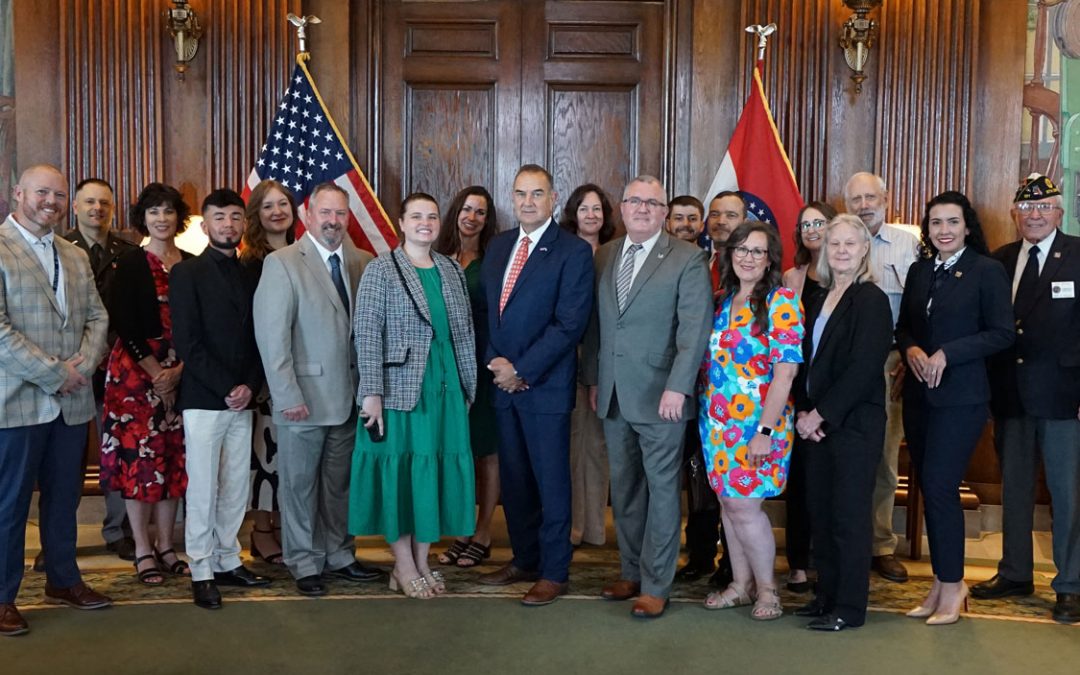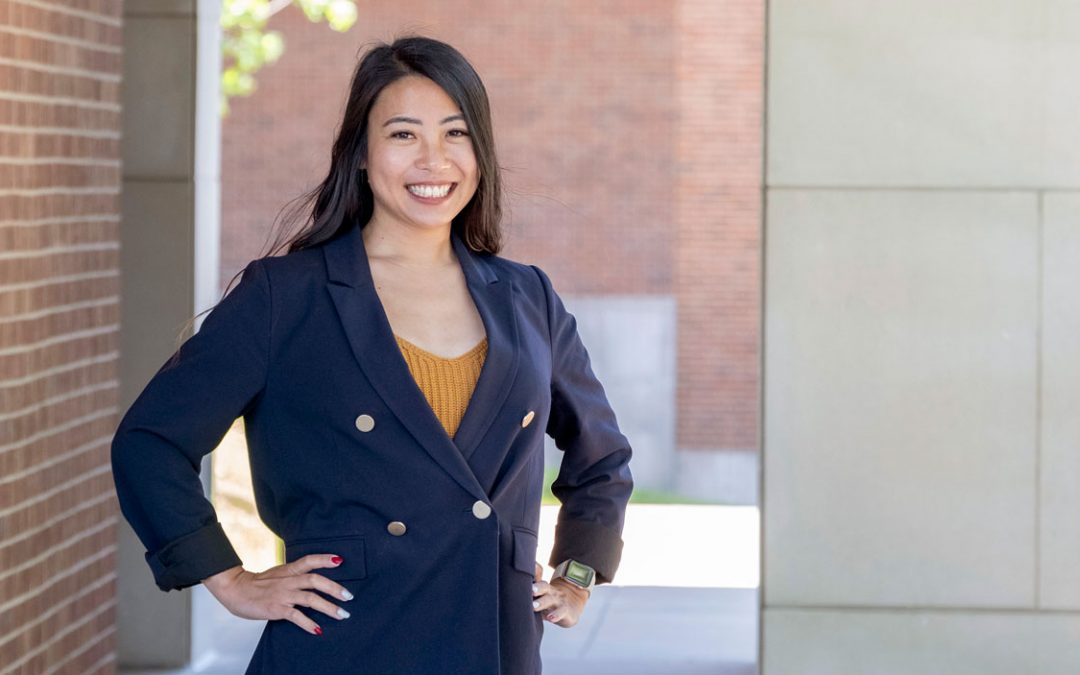
Sharlee Climer, Aimee Dunlap, Kailash Joshi, Trey Kidd, Lynda McDowell and Jennifer Siciliani, Alina Slapac, Ann Steffen and Adriano Udani have been granted time to devote to research or course development during the fall or spring semester of the 2024-25 academic year. (Photo collage by Derik Holtmann)
The University of Missouri–St. Louis is granting sabbaticals or teaching releases to six tenure track and three nontenure track faculty members to expand their scholarship or enhance the curriculum during the upcoming academic year.
Associate Professor Sharlee Climer from the Department of Computer Science, Associate Professor Aimee Dunlap from the Department of Biology, Professor Kailash Joshi from the Department of Information Systems and Technology, Associate Professor Alina Slapac from the Department of Educator Preparation and Leadership, Professor Ann Steffen from the Department of Psychological Sciences and Associate Professor Adriano Udani from the Department of Political Science will each spend either the fall or spring semester pursuing research work through the university’s sabbatical leave program.
Nontenure track faculty members Trey Kidd, an associate teaching professor from the Department of Biology; Lynda McDowell, an associate teaching professor from the Department of Chemistry and Biochemistry; and Jennifer Siciliani, a teaching professor from the Department of Psychological Sciences, have also received teaching releases to allow them to enhance their teaching skills or work on curriculum or course development through UMSL’s Teaching Leave Program for Nontenure Track Faculty.
The program is meant to allow for professional development for experienced, non-tenure track faculty, and those selected are eligible to receive their full salary while fulfilling a reduced teaching load. Each will receive releases from teaching two 3-hour courses during the upcoming academic year.
“Faculty sabbaticals foster invaluable scholarly pursuits, igniting innovation and enriching academic contributions,” said Steven J. Berberich, provost and vice chancellor for academic affairs. “We are glad to be able to provide these opportunities to our exceptional faculty, and we look forward to seeing the fruits of their work in the year ahead.”
Under University of Missouri System policies, tenured faculty members are eligible to apply for a sabbatical leave after six or more years of service. There are similar requirements for nontenure track faculty members to be eligible for UMSL’s Teaching Leave Program.
The application process for sabbaticals and teaching leaves during the 2025-26 academic year will open later this year with deadlines to apply next fall.
Learn more about how each of the faculty members plans to use their time away.
Sabbaticals
Sharlee Climer, Department of Computer Science: Climer will use the fall semester to work to identify subtypes of late-onset Alzheimer’s disease using genetics and plasma proteins. Alzheimer’s disease is known to be heterogenous due to the diverse genetic and environmental risks factors, clinical manifestations and locations of aberrant proteins in the brain. However, it is not currently known how to accurately partition Alzheimer’s cases into subtype groups. Climer plans to develop computational tools and analyze massive datasets to extract patterns of genetic markers and plasma proteins that are associated with subsets of Alzheimer’s cases. It’s hoped these identifications will simultaneously reveal both the subtype groups as well as guidelines for diagnoses. If successful, the information gleaned will inform biological processes underlying each subtype, fuel hypotheses for drug targets and provide methods for stratifying participants for drug trials.
Aimee Dunlap, Department of Biology: Dunlap plans to spend the fall semester completing data analysis and interpretation on the results of a large experimental evolution study in fruit flies, which tested theoretical predictions about the role of different types of environmental change in evolving enhanced learning and innate bias. She expects to write multiple manuscripts related to the research that will contribute directly to her next National Science Foundation grant proposal. An extension of the theory for when learning should evolve also predicts when prepared learning will evolve in response to patterns of change in the environment. She also intends to develop a theory manuscript on these special types of learning in the context of pollination, which will guide her lab’s bee research for the next several years. Dunlap is conscious of the need to continually deepen her laboratory skills, particularly in the application of molecular techniques that can now be used to research large questions related to evolution and ecology. She also plans to use her sabbatical to work with a local collaborator to learn gene-editing techniques and new bioinformatics pipelines and will also audit a biotechnology course at UMSL.
Kailash Joshi, Department of Information Systems and Technology: Joshi intends to use the spring 2025 semester to investigate the influence of autistic tendency and information technology mindfulness on individual interest in IT fields. There’s long been concern about the gender imbalance in STEM fields, including IT, and researchers have examined possible causes and interventions that might address it. Recent research has identified the importance of autistic tendency in determining an individual’s intrinsic interest in IT-related fields. Autistic tendency shows a normal distribution throughout the population ranging from low levels to high levels, and only beyond the normal range, at clinically high levels, is it recognized as neurodevelopment disability. Researchers identified that when autism tendency level is controlled, there is no significant difference in the interest in IT between males and females in the normal population in the United States so interest in IT appears to be determined by an individual’s level of autistic tendency, not gender. He also plans to examine the role of autism spectrum quotient and systemizing quotient in influencing personal interest in IT and computer playfulness.
Alina Slapac, Department of Educator Preparation and Leadership: Slapac has sustained international partnerships in Romania and South Africa and focuses her research on global education and internationalization of the curriculum, teacher action research and teacher development. She plans to spend the fall semester deepening her next research phase and the fourth virtual international exchange and teaching iteration of the Collaborative Online International Learning – or COIL – course design for the Spring 2025 semester. She will be working with research and teaching partner Karen Collett from the University of the Western Cape in South Africa. Slapac also plans to provide the community of international teachers from public schools in Romania and South Africa with professional development on teacher action research and COIL to enhance the internationalization of the curriculum at the school level. She will engage the international teachers on areas of mutual interest and concerns in improving pedagogical practice and intercultural competence and would like to foster other international research partnerships related to COIL.
Ann Steffen, Department of Psychological Sciences: Steffen published a psychotherapy workbook and clinician guide in 2021 for “Treating Later-Life Depression: A Cognitive Behavioral Approach” in the Treatments That Work Series by Oxford University Press. She will use her fall sabbatical to work on her newest book contract with Guilford Press. The book, “Psychotherapy in the Second Half of Life: Doing What Works,” will be written for graduate students who are learning how to be mental health clinicians, across a range of disciplinary backgrounds, including social work, counseling, mental health nursing and clinical psychology. It’s important work because of the dramatic increase in the number of older Americans living in the United States since 2011, when Baby Boomers first turned 65. Some of these individuals will experience challenges that lead to mental health concerns, and most mental health providers have not been trained in research-supported treatments for older adults. The sabbatical will give Steffen time to complete a full draft of the book along with new aging-friendly tools for mental health practice.
Adriano Udani, Department of Political Science: Udani will use his sabbatical to serve as both author and editor of a scholarly book produced alongside community partners in St. Louis and asylum seekers from Latin America. The book will take advantage of four years of field work to help illuminate Latin American immigrant political behavior, particularly the extent to which they collectively reject violent and inhumane treatment in the asylum process and work to reimagine more just and dignified forms of free movement. The book will center the experience of 100 asylum seekers in St. Louis who have named themselves “Migrantes Unidos.” Members of the group will be invited to offer creative works such as personal narratives, photographs, art and poetry that they have made during their time in St. Louis, and the book will challenge readers to think about what justice, equity and inclusion really mean in political advocacy work.
Teaching releases
Trey Kidd, Department of Biology: Kidd intends to take a two-course leave in the spring semester to overhaul the biology capstone course, Biology 4889, required of all biology students during their final semester. His goal is to develop a course that expands from its current focus on communication to include bioethics and career development skills, one that provides students an opportunity to demonstrate achievement of program learning objectives, one that will shift from a full in-person to a blended modality and one that increases the section size from 12 to 24 students to allow for greater flexibility in how the course is scheduled. Kidd plans to consult with other departments at UMSL and other UM System universities – as well as colleagues at other institutions – to learn about different types of opportunities and experiences offered as part of capstone courses. He hopes to work with the Center for Teaching and Learning to take the information he gathers and apply it toward building a new course structure and content.
Lynda McDowell, Department of Chemistry and Biochemistry: McDowell is using a release in each semester to allow her to reimagine and redesign Chemistry 2223, “Quantitative Analysis in Chemistry.” She hopes to make the course more accessible for students and to promote deeper learning. She intends to reorganize the Canvas site for the course, revise and rewrite course materials for clarity and conciseness and will work to incorporate active learning and group activities during lectures. To that end, McDowell will pursue training in Process-Oriented Guided Inquiry Learning – a teaching tool originally developed for chemistry that is based on the learning cycle. She believes the changes will improve the student experience in the course and encourage persistence toward degree completion.
Jennifer Siciliani, Department of Psychological Sciences: Siciliani will use her two-course release in the fall semester to work on developing a proposed new course, “Psychology of the Good Life.” She expects the course to include the exploration and real world application of evidence-based best practices for living a life of happiness and wellness. It will examine everything from time management, sleep, how to foster a positive mindset, skills to manage and cope with stress, mental health awareness, self-care and developing healthy habits, emotional intelligence, relationships, financial literacy, global citizenry and more. Siciliani expects the in-person course to feature invited expert speakers, curated content, research projects, collaborative group work, and weekly logs and reflections. The course would be open to any UMSL student. Similar courses have shown to be popular at other institutions around the country.














